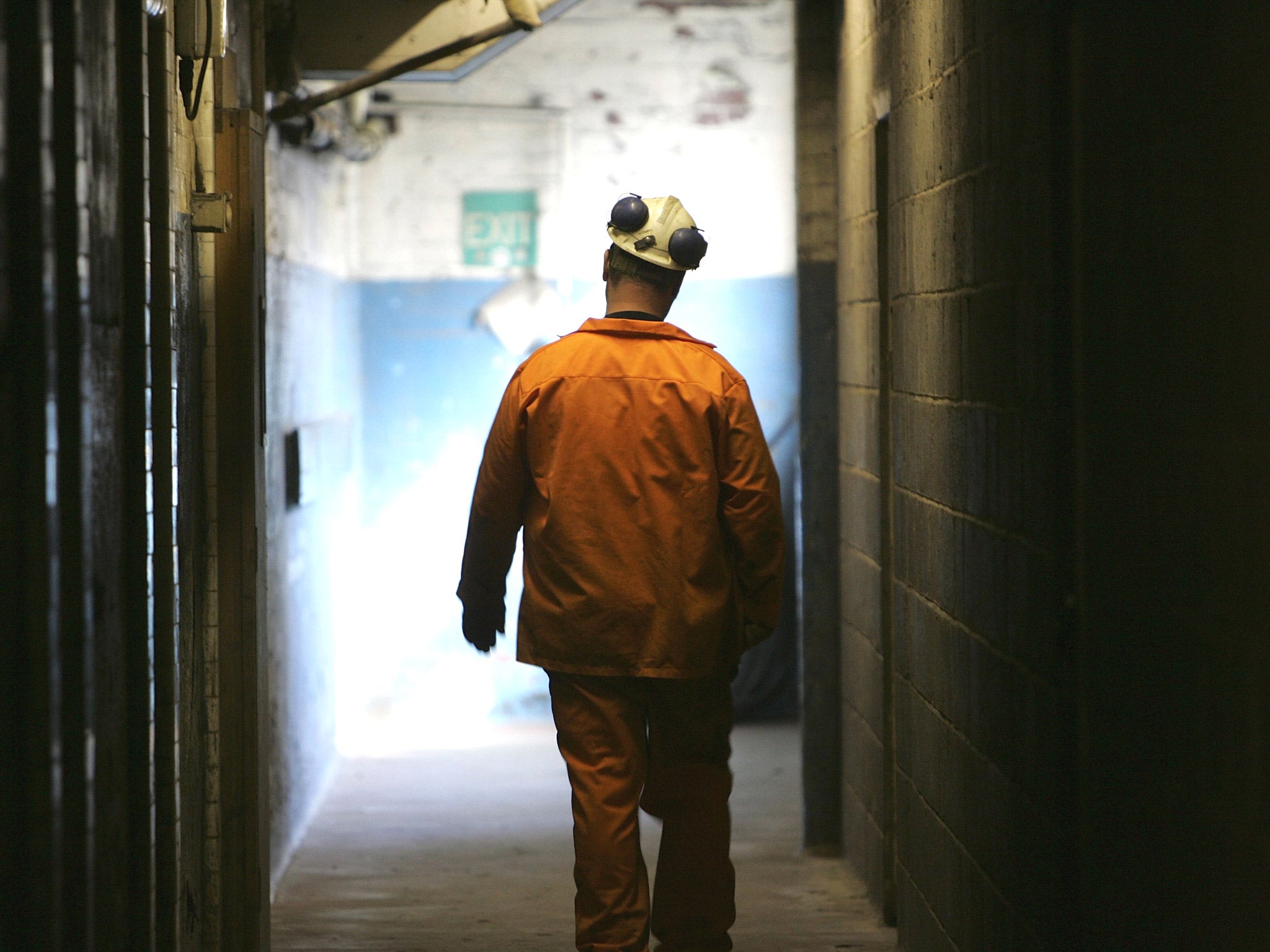Pits to shut and jobs to go after fall in global coal price partly caused by boom in US shale gas
The closures would leave only Hatfield in South Yorkshire as the last remaining deep mine in Britain

Your support helps us to tell the story
From reproductive rights to climate change to Big Tech, The Independent is on the ground when the story is developing. Whether it's investigating the financials of Elon Musk's pro-Trump PAC or producing our latest documentary, 'The A Word', which shines a light on the American women fighting for reproductive rights, we know how important it is to parse out the facts from the messaging.
At such a critical moment in US history, we need reporters on the ground. Your donation allows us to keep sending journalists to speak to both sides of the story.
The Independent is trusted by Americans across the entire political spectrum. And unlike many other quality news outlets, we choose not to lock Americans out of our reporting and analysis with paywalls. We believe quality journalism should be available to everyone, paid for by those who can afford it.
Your support makes all the difference.Two of the last deep coal mines in Britain are set to close over the next 18 months, their owner has confirmed.
UK Coal said there would be a “managed rundown” of Kellingley in Yorkshire and Thoresby in Nottingham, but only if an investor could be found to deliver an emergency cash injection of between £10m and £20m.
If no extra funding is forthcoming the collieries, which between them employ 1,300 people, are likely to shut even sooner. Job losses at the firm’s Doncaster headquarters would also be likely.
The closures would leave Hatfield in South Yorkshire, the colliery featured in the 1996 film Brassed Off, as the last remaining deep pit in the UK. It has been owned by its workers since December last year, when they bought it from the bank ING.
Andrew Mackintosh, of UK Coal, said the company had been hit by the low international price of coal – partly caused by the boom in US shale gas – and the high price of the pound, relative to the dollar, which they trade in.
“What we are looking at is a managed rundown of those two deep mines (Kellingley and Thoresby), and that would be over the next 18 months,” he said.
Mr Mackintosh said the company was in “advanced” discussions about external investment that would allow this process to happen. “If we don’t get the investment, we would be facing a very serious financial issue that we would have to address in the coming weeks,” he added.
UK Coal also has six surface coal mines, four of them productive, and employs a total of 2,000 people. Consultations with trade unions over beginning to reduce staff numbers started earlier this week.
National Union of Mineworkers branch secretary Keith Poulson said the decision was “absolutely ridiculous. The lads are absolutely disgusted. Coal still generates 40 per cent of the electricity in this country. We still need our pits.”
Government officials believe the closure of the deep pits poses a low risk of impact on security of energy supply. They argue that UK Coal’s surface mines should enable its production to continue at 40 per cent of its current rate.
In July, UK Coal went into administration after a fire forced the closure of its Daw Mill colliery in Warwickshire. A spokesman for Hatfield said employees there had put together a business plan that had convinced ING it had a commercially viable future. He said the pit had a contract to sell all of its produce until the end of 2015.
A source admitted that Hatfield had “a fairly chequered history” – it was acquired by ING about four years ago after the previous owners went out of business – but said there was “no reason to suppose Hatfield hasn’t got a future”. But when asked if the future of the business was a rosy one, the source replied bluntly: “No”.
Join our commenting forum
Join thought-provoking conversations, follow other Independent readers and see their replies
Comments